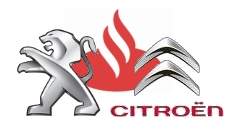
PSA Peugeot-Citroën is considering selling off a part of its finance arm Banque PSA Finance to Banco Santander, or merging the bank with Santander assets, according to the Wall Street Journal.
The potential sale is the latest in a series of actions undertaken to stabilise the bank, the most recent being the sale of 470m (£404m) asset-backed bonds in June 2013.
The sale or asset merger with Santander could eliminate Banque PSA’s reliance on state guarantees, appeasing EU regulators.
The potential purchase of Banque PSA would see Banco Santander, the banking parent group including Santander Consumer Finance, further increase their motor finance market presence across the globe. Since the turn of the year the bank has begun a finance joint venture in China, estimated its US business to be worth $8bn, and renewed its Vauxhall Network Q agreement in the UK.
Revenue, sales and ratings
Banque PSA had been performing well, with a net profit of 293m (£252m) from revenue of 1.07bn in 2012, although Peugeot and Citroën, like many continental manufacturers, have suffered from the dormant new car market in Europe.
How well do you really know your competitors?
Access the most comprehensive Company Profiles on the market, powered by GlobalData. Save hours of research. Gain competitive edge.

Thank you!
Your download email will arrive shortly
Not ready to buy yet? Download a free sample
We are confident about the unique quality of our Company Profiles. However, we want you to make the most beneficial decision for your business, so we offer a free sample that you can download by submitting the below form
By GlobalDataThe decline in sales led to a series of downgrades in the bank’s credit-ratings by Moody’s, Standard & Poor’s and Fitch’s earlier this year, leaving the bank unable to raise money at a competitive rate.
Banque PSA required a 7bn state guarantee from the French government in October 2012 in order to stay liquid. The guarantee was controversial as government support could be regarded as assistance from the state, which violates EU competition policy.







